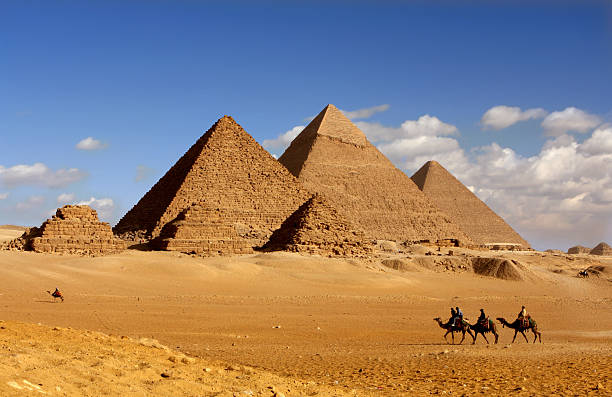
Due to its position, Egypt is more vulnerable to the consequences of the conflict in Gaza. Sharing a border with the region, it has often been pressured to play a more active role, specifically, to welcome Palestinian refugees. Egypt has historically determinately refused to do so claiming that it would mean to abandon the Palestinian cause. The recent developments, however, have reinvigorated the pressure to help mitigate the human losses in Gaza. With over half of Gaza’s population of more than 2 million on the move, Israeli tanks advancing from the north and east, and continuous bombardment by warplanes and artillery, many Palestinians are heading towards the Egypt border in search of essentials like food, electricity, water, and safety. Egypt has shown concern for the humanitarian situation in Gaza by calling for Israel to open the Rafah crossing for humanitarian aid, requests that have been mostly ignored. The Egyptian Red Cross reports that only 84 lorries of medicine and food have entered Gaza since the conflict began. Notwithstanding the show of concern, Egypt is simultaneously reinforcing its border with tanks and troops to prevent Palestinians from entering. Ahmed Aboul-Gheit, a former Egyptian foreign minister, and secretary-general of the Arab League, warned against a potential second naqba for Palestinians.
Presumably, in this situation Egypt is grappling with three main concerns. Firstly, Egypt has to manage the increasing pressure to accommodate Palestinians, whilst avoiding the potential conflict with Bedouins in the Sinai and a resurgence of the Muslim Brotherhood. Therefore, the first challenge is to ensure the current humanitarian pressure at the border does not affect Egypt’s own internal stability. The issue is, in fact, already felt, particularly among the Bedouin in the Sinai, who have been marginalised and previously rebelled against the central government. Their concern is that Egypt may, under international pressure, implement a plan involving resettling Palestinians in the Sinai, in exchange for debt forgiveness. Whilst the government has denied such plan, the Bedouin claim that around 50,000 Bedouin have been pushed out of an area stretching 13km, where a new entire city, meant to accommodate an influx of Palestinians, was built. Was that to be the case, it can be envisioned that tensions between the Bedouin and the government would worsen, thus impacting internal stability.
Similarly, the government is also concerned about the Muslim Brotherhood. Around a decade ago Egypt focused on tackling the issue of Islamists in the country by incarcerating thousands of them. However, after Hamas’ attacks on Israel their credibility is believed to be on the rise. Therefore, Egypt’s president, Mr Sisi, has expressed his concerns about Hamas’ members finding refuge in Egypt. He has warned that new refugee camps in Sinai could easily serve a base for jihadist attacks on Israel. These concerns seem to be shared more widely. Amongst others, Ahmed Aboudouh, part of Chatham House, a London based-think tank, expressed fear of the Brotherhood regaining their legitimacy. Another issue Egypt faces as a result of war is the insurgence by anti-Israel protesters.
Although protests have been smaller in Arab cities than those in the West, the consequences of widespread unrest worry authorities in Arab countries, and Egypt is no exception. As a result, the presence of security forces has been increased. Underpinning such strong reaction to relatively contained protests is the fear that protests could turn against the regime. In fact, Egypt is struggling with many internal issues which risk fuelling discontent. The main worry at the moment is the beleaguered economy. Importantly, the latter could be further harmed by the war. In fact, the International Monetary Fund (IMF) has warned the war could discourage foreign investors, thus, the country’s growth outlook has been negatively impacted. Another sector widely impacted is tourism. Whilst in recent years tourism has been booming, positively contributing to the economy, after the start of the war air traffic is significantly down, presumably due to the perception of the region as unsafe. A final consideration to make regards the impact of this war on Egypt’s standing in the region.
While Egypt’s president attempts to appease the public, comparing himself to Anwar Sadat, the reluctance to get involved in the Gaza conflict may impact his image as a strong leader. Egypt’s diminished role in the region is evident, with Qatar becoming the main patron of Hamas, and the UAE challenging Egypt’s position as the prime interlocutor with Israel. Despite discussions about Egypt playing a role in resolving the humanitarian crisis in Gaza, the country appears hesitant to become entangled in the situation while dealing with pressing domestic issues.
To conclude, as a result of the war in Gaza Egypt faces domestic and international challenges. The pressure to welcome Palestinian refugees has to be balanced against the risk of increasing tensions with the Bedouin and enabling a new wave of radical Islamism. Similarly, the government will have to carefully trade with anti-Israel protests that carry with them the risk of becoming anti-government. All of this whilst engaging in a very delicate balancing act between playing an active role in the region and preserving its stability as well as its peace with Israel.
By The European Institute for International Law and International Relations















